Continuing the NanoHarmony NANOMET journey:
Harmonisation & Standardisation of Test Methods
for Nanomaterials and Advanced Materials
Two Days focused on the Standardisation Roadmaps for in vitro Models and Graphene
*** ONLINE ***
22. – 23. November 2023, 10:00 – 15:15 CET




DAY 1 (Wednesday, 22nd November 2023)
Chair: Sean Kelly (Nanotechnology Industries Association)
09:45 – 10:00
10:00 – 10:20
Welcome and Introduction to the Workshop
Steffi Friedrichs (AIST)
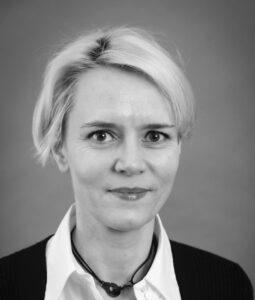 Dr Steffi Friedrichs, Founder & Director of AcumenIST SRL, has been a leading expert, policy advisor and business representative for emerging technological innovation for over 20 years.
Steffi made a name for herself as the founder and Director-General of the Nanotechnology Industries Association (NIA) group, where she established novel, collaborative approaches to the political representation of technology-based companies.
Having thus initiated numerous large-scale public-private collaborations and created channels for industries’ contributions to both international and national regulatory processes, Steffi subsequently worked for the OECD, where she developed its definition, indicators and impact assessment of biotechnology, nanotechnology, and other converging technologies, and led two international technology policy workshops on genome editing.
Wishing to support the advancement of transparent, science-based policy-making, Steffi gathered a strong track record in the establishment, development and representation of technology-based companies, and created and ran participatory technology assessment workshops. She initiated several outreach and communication initiatives to foster the public understanding of novel technologies. She was a Co-Founder and Member of the Board of Directors of the Chicago Micro- & Nanotechnology Community (CMNC), Director of the Master’s Programme in Micro- and Nanotechnology at the University of Cambridge, and Lecturer in Inorganic Chemistry and Solid State Chemistry at the University of Oxford.
Dr Steffi Friedrichs, Founder & Director of AcumenIST SRL, has been a leading expert, policy advisor and business representative for emerging technological innovation for over 20 years.
Steffi made a name for herself as the founder and Director-General of the Nanotechnology Industries Association (NIA) group, where she established novel, collaborative approaches to the political representation of technology-based companies.
Having thus initiated numerous large-scale public-private collaborations and created channels for industries’ contributions to both international and national regulatory processes, Steffi subsequently worked for the OECD, where she developed its definition, indicators and impact assessment of biotechnology, nanotechnology, and other converging technologies, and led two international technology policy workshops on genome editing.
Wishing to support the advancement of transparent, science-based policy-making, Steffi gathered a strong track record in the establishment, development and representation of technology-based companies, and created and ran participatory technology assessment workshops. She initiated several outreach and communication initiatives to foster the public understanding of novel technologies. She was a Co-Founder and Member of the Board of Directors of the Chicago Micro- & Nanotechnology Community (CMNC), Director of the Master’s Programme in Micro- and Nanotechnology at the University of Cambridge, and Lecturer in Inorganic Chemistry and Solid State Chemistry at the University of Oxford.
10:20 – 10:40
Status of OECD TG Developments for Nanomaterial
Mar Gonzalez (OECD)
10:40 – 11:00
The European Partnership on Metrology (EPM) and VAMAS: Opportunities for Pre-Standardisation Activities
Georges Favre (LNE)
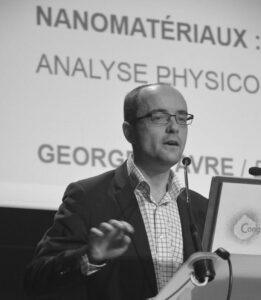 Dr. Georges Favre is the Director of Nanotech Institute at LNE, which carries out R&D activities aimed at validating the performances of new measurement technologies and harmonising standard operating procedures (SOPs) in relation to multiple issues (nanomaterial identification, quality control, NOAAs emissions assessment, etc.) and properties (size distribution, concentration, stability/dispersibility, dustiness, dopant profile, conductivity, etc.) for different types of nanomaterials (metal oxides, graphene, LNPs, EVs, etc.), as well as services to industry and governmental agencies. He is involved in numerous networks and initiatives dealing with Advanced Materials/Nanomaterials characterisation/metrology, standardisation (AFNOR, CEN, VAMAS, OECD/WPMN…), safety and regulation topics. He co-created in 2022 the NanoMesureFrance association which ambition is to strengthen confidence in nanomaterials and associated innovations by bringing together key stakeholders (producers and users of nanomaterials, instrument manufacturers, service providers, laboratories and analytical platforms) in order to share information and work on harmonisation and validation of the tools and methods needed to characterise key phys-chem properties of nanomaterials at different stages of their life cycle.
Dr. Georges Favre is the Director of Nanotech Institute at LNE, which carries out R&D activities aimed at validating the performances of new measurement technologies and harmonising standard operating procedures (SOPs) in relation to multiple issues (nanomaterial identification, quality control, NOAAs emissions assessment, etc.) and properties (size distribution, concentration, stability/dispersibility, dustiness, dopant profile, conductivity, etc.) for different types of nanomaterials (metal oxides, graphene, LNPs, EVs, etc.), as well as services to industry and governmental agencies. He is involved in numerous networks and initiatives dealing with Advanced Materials/Nanomaterials characterisation/metrology, standardisation (AFNOR, CEN, VAMAS, OECD/WPMN…), safety and regulation topics. He co-created in 2022 the NanoMesureFrance association which ambition is to strengthen confidence in nanomaterials and associated innovations by bringing together key stakeholders (producers and users of nanomaterials, instrument manufacturers, service providers, laboratories and analytical platforms) in order to share information and work on harmonisation and validation of the tools and methods needed to characterise key phys-chem properties of nanomaterials at different stages of their life cycle.
11:00 – 11:20
Contribution of ECVAM towards Validation and regulatory Acceptance of in vitro Methods
Valérie Zuang (ECVAM)
 Valérie Zuang is a senior scientific officer at the European Commission’s Joint Research Centre (JRC). She obtained her PhD from the Medical School at the University of Nottingham in the UK. She previously worked at the European Parliament's Scientific and Technological Options Assessment programme (STOA), where she provided scientific advice to parliamentary committees on policy options. Since 1994, she has been employed at the European Centre for the Validation of Alternative Methods (ECVAM) at the European Commission's Joint Research Centre in Ispra, Italy. In her role there, she led projects on the validation of alternative methods for cosmetics and chemicals legislation, as well as topical toxicity. She later worked at the Systems Toxicology Unit within the JRC where she oversaw the validation workflow of the European Union Reference Laboratory for Alternatives to Animal Testing (EURL ECVAM). Currently, she serves as the EU National Coordinator of Testing Methods, responsible for coordinating the translation of scientifically valid alternative methods into EU legislation and international standards. She also coordinates the EURL ECVAM network of regulators (PARERE) and the International Cooperation on Alternative Test Methods (ICATM). Additionally, she is the lead editor of the annual EURL ECVAM Status Reports.
Valérie Zuang is a senior scientific officer at the European Commission’s Joint Research Centre (JRC). She obtained her PhD from the Medical School at the University of Nottingham in the UK. She previously worked at the European Parliament's Scientific and Technological Options Assessment programme (STOA), where she provided scientific advice to parliamentary committees on policy options. Since 1994, she has been employed at the European Centre for the Validation of Alternative Methods (ECVAM) at the European Commission's Joint Research Centre in Ispra, Italy. In her role there, she led projects on the validation of alternative methods for cosmetics and chemicals legislation, as well as topical toxicity. She later worked at the Systems Toxicology Unit within the JRC where she oversaw the validation workflow of the European Union Reference Laboratory for Alternatives to Animal Testing (EURL ECVAM). Currently, she serves as the EU National Coordinator of Testing Methods, responsible for coordinating the translation of scientifically valid alternative methods into EU legislation and international standards. She also coordinates the EURL ECVAM network of regulators (PARERE) and the International Cooperation on Alternative Test Methods (ICATM). Additionally, she is the lead editor of the annual EURL ECVAM Status Reports.
11:20 – 11:40
MACRAMÉ´s Approach towards the Harmonisation of in vitro/ex vivo Models for Inhalation Toxicology
Tommaso Serchi (LIST)
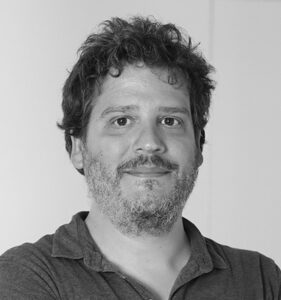
Dr. Tommaso Serchi is a Lead R&T Associated in the Environmental Health group of the Luxembourg Institute of Science and Technology. He has a background in medicinal chemistry and technology. He obtained a PhD in medical biotechnology and he is an European Registered Toxicologist (Belgian Registry) and holds a habilitation from the Italian Ministry of Education and from the University of Luxembourg. He is a toxicologist with more than 10 years of experience in proteomics and in developing complex 3D in vitro models for a multitude of applications. He coordinates and is partners of several EU projectsn and EFSA projects.
He is the Head of the Luxembourg delegation for the OECD Working Party on Manufactured Nanomaterials (WPMN) and deputy Head of the Luxembourg delegation for the OECD National co-ordinators of the Test Guidelines programme working group. He participates in OECD working groups and experts committees such as those for “Bioacumulation of NanoMaterials” or for “Intestinal fate of orally ingested Nanomaterials”. He is the co-chair of the OECD Steering Group on Testing and Assessment (SGTA).
He is co-author of 53 scientific publications and 5 patents, and Google scholar has registered >1900 citations and an h-index of 26.
11:40 – 12:40
12:40 – 13:00
The Work planned in nanoPASS to support the Weight of Evidence of AOP302 Lung Surfactant Function Inhibition Leads to reduced Lung Function
Jorid Birkelund Sørli (NRCWE)
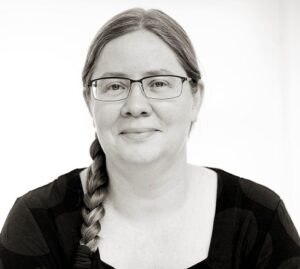 Jorid Sørli is senior researcher at the National Research Centre for the Working Environment, Copenhagen, Denmark. Among other projects, she is working in the EU Horizon project NanoPASS where she tests occupational relevant materials in vitro. She has a Ph.D. in immunology, and for the last 10+ years has worked with alternative models for testing and regulation of chemicals that can potentially be inhaled. To establish the applicability domain of the model (based on lung surfactant function measured in vitro) she has compared the results from the model with results from inhalation experiments in animal models, 3D cell models of the lungs, and data from exposed humans.
Jorid Sørli is senior researcher at the National Research Centre for the Working Environment, Copenhagen, Denmark. Among other projects, she is working in the EU Horizon project NanoPASS where she tests occupational relevant materials in vitro. She has a Ph.D. in immunology, and for the last 10+ years has worked with alternative models for testing and regulation of chemicals that can potentially be inhaled. To establish the applicability domain of the model (based on lung surfactant function measured in vitro) she has compared the results from the model with results from inhalation experiments in animal models, 3D cell models of the lungs, and data from exposed humans.
13:00 – 13:20
iCare’s Approach towards the Harmonisation of human and ecotox Models for Neurotoxicity
Alberto Katsumiti (GAIKER)
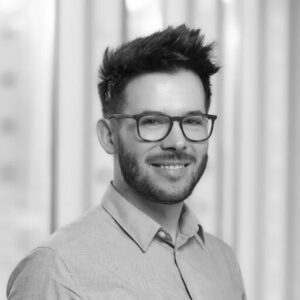 Dr Alberto Katsumiti is a researcher at GAIKER Technology Centre. He has 20 years’ experience in ecotoxicology and human health studies and 14 years’ experience in Nanotoxicology. He has a BSc Degree in Biology, MSc Degree in Ecology and Conservation, a second MSc Degree and PhD in Environmental Contamination and Toxicology. His research activity has been focused on the study of the mechanisms of toxicity of environmental pollutants especially emerging contaminants (e.g. nanomaterials, advanced materials, microplastics) on human health and the environment using alternative methods and in vitro tools. He has also been actively involved in the development of New Approach Methodologies (NAMs) for human and environmental hazard assessment. He is a member of the EU-NETVAL (European Union Network of Laboratories for the Validation of Alternative Methods), and GAIKER representative in the EFSA’s art 36 competent organisations.
Dr Alberto Katsumiti is a researcher at GAIKER Technology Centre. He has 20 years’ experience in ecotoxicology and human health studies and 14 years’ experience in Nanotoxicology. He has a BSc Degree in Biology, MSc Degree in Ecology and Conservation, a second MSc Degree and PhD in Environmental Contamination and Toxicology. His research activity has been focused on the study of the mechanisms of toxicity of environmental pollutants especially emerging contaminants (e.g. nanomaterials, advanced materials, microplastics) on human health and the environment using alternative methods and in vitro tools. He has also been actively involved in the development of New Approach Methodologies (NAMs) for human and environmental hazard assessment. He is a member of the EU-NETVAL (European Union Network of Laboratories for the Validation of Alternative Methods), and GAIKER representative in the EFSA’s art 36 competent organisations.
13:20 – 13:40
Strategies to increase the technical Quality of new Approach Methodologies (NAMs) and Nanoecotoxicology Tests
Elijah Petersen (NIST)
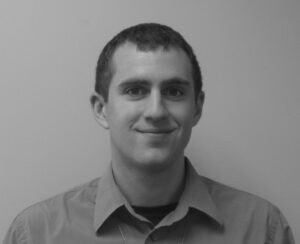 Elijah J. Petersen completed his Ph.D. at the University of Michigan in Environmental Engineering. Then, he completed postdocs at the University of Joensuu (Finland) on a Fulbright scholarship and then the University of Michigan before joining NIST as a National Research Council postdoctoral fellow. He became a staff scientist at NIST in 2010 and works in the Cell Systems Science group in the Biosystems and Biomaterials division. His research has focused development of robust, reproducible nanotoxicology measurements for both environmental and human health endpoints. He is currently a co-chair of the ICCVAM validation work group.
Elijah J. Petersen completed his Ph.D. at the University of Michigan in Environmental Engineering. Then, he completed postdocs at the University of Joensuu (Finland) on a Fulbright scholarship and then the University of Michigan before joining NIST as a National Research Council postdoctoral fellow. He became a staff scientist at NIST in 2010 and works in the Cell Systems Science group in the Biosystems and Biomaterials division. His research has focused development of robust, reproducible nanotoxicology measurements for both environmental and human health endpoints. He is currently a co-chair of the ICCVAM validation work group.
13:40 – 15:00
Round Table on Harmonisation & Standardisation of in vitro Models and how to bridge them into Regulation
*** Panelists: Presenters of Day 1 ***
Chair:
Blanca Suarez Merino (NIA)
 Dr Suarez-Merino (DPhil Oxford Biochemistry) is the Regulatory Affairs Director at the Nanotechnology Industries Association and Cofounder of TEMAS Solutions GmbH. Dr Suarez-Merino is Vice Chair of the BIAC Nanotechnology Committee at the OECD contributing to several groups under the OECD WPMN including the Steering Group on Advanced Materials and the Safe Innovation Approach. She also contributes to the Nanomaterial Expert Group under ECHA and the EFSA's Stakeholder Discussion Group on Emerging Risks (StadDG-ER). She is also a National Expert under the Nanotechnologies Standardisation Group (SNV) and routinely contributes to work under CEN/TC 352 Nanotechnologies, leading the SSbD standard. Dr Suarez-Merino is also a member of the Swiss National Platform on the safe handling of synthetic nanomaterials and co-authored the update of the Precautionary Matrix for Nanomaterials, and contributed to different testing guidelines for safety assessment of nanomaterials, the latest one being the adaptation of OECD TG 442D. She has been very active in European Projects focusing on Regulatory research and nanomaterials for several years.
Dr Suarez-Merino (DPhil Oxford Biochemistry) is the Regulatory Affairs Director at the Nanotechnology Industries Association and Cofounder of TEMAS Solutions GmbH. Dr Suarez-Merino is Vice Chair of the BIAC Nanotechnology Committee at the OECD contributing to several groups under the OECD WPMN including the Steering Group on Advanced Materials and the Safe Innovation Approach. She also contributes to the Nanomaterial Expert Group under ECHA and the EFSA's Stakeholder Discussion Group on Emerging Risks (StadDG-ER). She is also a National Expert under the Nanotechnologies Standardisation Group (SNV) and routinely contributes to work under CEN/TC 352 Nanotechnologies, leading the SSbD standard. Dr Suarez-Merino is also a member of the Swiss National Platform on the safe handling of synthetic nanomaterials and co-authored the update of the Precautionary Matrix for Nanomaterials, and contributed to different testing guidelines for safety assessment of nanomaterials, the latest one being the adaptation of OECD TG 442D. She has been very active in European Projects focusing on Regulatory research and nanomaterials for several years.
DAY 2 (Thursday, 23rd November 2023)
09:45 – 10:00
10:00 – 10:10
Welcome & Introduction to Day 2
Ernesto Alfaro-Moreno (INL)
10:10 – 10:30
OECD Test Guidelines for Nanomaterials: Support and future steps towards TG development by Malta Initiative and NanoHarmony
Elisabeth Heunisch (BAuA)
 Dr. Elisabeth Heunisch is a scientist at the Federal Institute for Occupational Safety and Health (BAuA) in Germany with a background in Physical Chemistry. She has a PhD in Chemistry obtained at the Free University Berlin for her work at the Helmholtz-Zentrum Berlin on charge separation in quantum dot layers. Her work is dedicated towards the safety of nano- and advanced materials, with a strong focus on occupational safety towards fibrous aerosols. She is co-leading the EU-funded project NanoHarmony and co-chairing the Malta Initiative, both dedicated to support the development of OECD Test Guidelines for nanomaterials. She is involved in several further research projects that support risk assessment of nano- and advanced materials (Gov4Nano, MACRAMÉ) and contributes to the OECD Test Guideline for dustiness testing of nanomaterials and the WPMN Guidance on Release Tests for Nanomaterials.
Dr. Elisabeth Heunisch is a scientist at the Federal Institute for Occupational Safety and Health (BAuA) in Germany with a background in Physical Chemistry. She has a PhD in Chemistry obtained at the Free University Berlin for her work at the Helmholtz-Zentrum Berlin on charge separation in quantum dot layers. Her work is dedicated towards the safety of nano- and advanced materials, with a strong focus on occupational safety towards fibrous aerosols. She is co-leading the EU-funded project NanoHarmony and co-chairing the Malta Initiative, both dedicated to support the development of OECD Test Guidelines for nanomaterials. She is involved in several further research projects that support risk assessment of nano- and advanced materials (Gov4Nano, MACRAMÉ) and contributes to the OECD Test Guideline for dustiness testing of nanomaterials and the WPMN Guidance on Release Tests for Nanomaterials.
10:30 – 10:50
Status and Challenges in Regulation of Graphene
Eric Bleeker (RIVM)
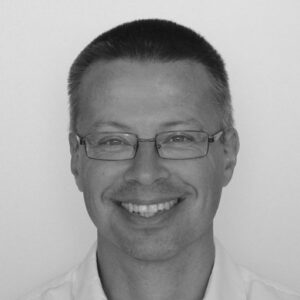 Dr. Eric Bleeker is a senior scientist at the National Institute of Public Health and the Environment (RIVM) in the Netherlands. He has a PhD in ecotoxicology and previously worked as a post-doc researcher in ecotoxicology for about 8 years. For the last 15 years he has been working on risk assessment of chemicals with a focus on nanomaterials, mainly focused on the European chemicals legislation REACH. His work on nanomaterials involves a broad range of topics. He provides policy advice and support, both on a national level (to several Dutch ministries), as well as on international levels (e.g. in adaptations of the REACH Regulation, the EU Recommendation on the definition of nanomaterials, and representing the Netherlands in ECHA’s NanoMaterials Expert Group and in the OECD Working Party on Manufactured Nanomaterials). He also contributes to guidance and test guidelines for nanomaterials (e.g. REACH Guidance at ECHA, OECD Test Guidelines and Guidance Documents). Furthermore, he has been and still is participating in several EU research projects that support risk assessment of nanomaterials (e.g. GRACIOUS, Gov4Nano, and NanoHarmony), which included advancing grouping approaches, test guideline developments, and governance. Currently, he expands his activities towards more advanced materials (e.g. in OECD-WPMN and the EU project MACRAMÉ).
Dr. Eric Bleeker is a senior scientist at the National Institute of Public Health and the Environment (RIVM) in the Netherlands. He has a PhD in ecotoxicology and previously worked as a post-doc researcher in ecotoxicology for about 8 years. For the last 15 years he has been working on risk assessment of chemicals with a focus on nanomaterials, mainly focused on the European chemicals legislation REACH. His work on nanomaterials involves a broad range of topics. He provides policy advice and support, both on a national level (to several Dutch ministries), as well as on international levels (e.g. in adaptations of the REACH Regulation, the EU Recommendation on the definition of nanomaterials, and representing the Netherlands in ECHA’s NanoMaterials Expert Group and in the OECD Working Party on Manufactured Nanomaterials). He also contributes to guidance and test guidelines for nanomaterials (e.g. REACH Guidance at ECHA, OECD Test Guidelines and Guidance Documents). Furthermore, he has been and still is participating in several EU research projects that support risk assessment of nanomaterials (e.g. GRACIOUS, Gov4Nano, and NanoHarmony), which included advancing grouping approaches, test guideline developments, and governance. Currently, he expands his activities towards more advanced materials (e.g. in OECD-WPMN and the EU project MACRAMÉ).
10:50 – 11:10
ISO and VAMAS Activities on (pristine) Graphene
Charles Clifford (NPL)
 Dr Charles Clifford is a principal scientist in the Surface Technology Group at the National Physical Laboratory, the UK’s national metrology laboratory. He has extensive experience in surface analysis, nanoscience measurement and characterization and international standardization. He is head of the UK delegation to ISO/TC229 (nanotechnologies), CEN TC 352 (European nanotechnologies) and IEC TC113 (electrotechnical nanotechnologies) and is currently leading the development of around 6 ISO and CEN standards. He leads and participates in collaborative projects with a focus on nanomaterials and analysis at the nanoscale. These include projects on graphene standardization through to measurement of nanoparticles in tissues. He has a background in scanning probe microscopy with a focus on developing and understanding scanning probe microscopy techniques in order to give quantitative information on a surface at the nanoscale beyond 'pretty pictures'.
Dr Charles Clifford is a principal scientist in the Surface Technology Group at the National Physical Laboratory, the UK’s national metrology laboratory. He has extensive experience in surface analysis, nanoscience measurement and characterization and international standardization. He is head of the UK delegation to ISO/TC229 (nanotechnologies), CEN TC 352 (European nanotechnologies) and IEC TC113 (electrotechnical nanotechnologies) and is currently leading the development of around 6 ISO and CEN standards. He leads and participates in collaborative projects with a focus on nanomaterials and analysis at the nanoscale. These include projects on graphene standardization through to measurement of nanoparticles in tissues. He has a background in scanning probe microscopy with a focus on developing and understanding scanning probe microscopy techniques in order to give quantitative information on a surface at the nanoscale beyond 'pretty pictures'.
11:10 – 11:30
Achievements of the Graphene Flagship and the Way forward
Jörg Radnik (BAM)
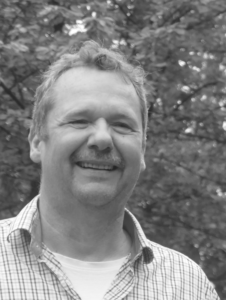
Dr. Jörg Radnik is Senior Scientist at the Federal Institute for Material Research and Testing, Berlin in the Division 6.1 “Surface analysis and Interfacial Chemistry” and working in the competence centre nano@BAM. His research focuses on the chemical analysis of nanostructured materials. He is currently involved in different nanosafety-related research projects (e.g. NanoSolveIt, ACCORDs) and in metrological projects (e.g. ISO-G-Scope). Since October 2023, he is leading the standardization and regulation task in the Graphene Flagship CSA. Furthermore, he is member of the Surface Analysis Working group of the consultative committee for amount of substance: metrology in chemistry and biology (CCQM) of the Bureau International des Poids et Mesure (BIPM) and one of the German representatives in the Versailles Project on Advanced Materials and Standards (VAMAS). In these functions, he leads different projects to enhance the accuracy and conformity of chemical methods in the field of nanomaterials. Furthermore, he is official delegate of the Deutsches Institut für Normung (DIN) in the technical committees for Surface Analytics and Nanotechnologies.
11:30 – 11:50
Framework on Characterisation
Terance Barkan (Graphene Council)
11:50 – 12:30
12:30 – 12:50
Interlaboratory Study of graphene using TGA
Dusan Losic (University of Adelaide)
12:50 – 13:10
Simultaneous Screening of the Stability and Dosimetry of Nanoparticles Dispersions using SMLS for in vitro Toxicological Studies
Guillaume Lemahieu (Formulaction)
13:10 – 13:30
Priorities for future (pre)standardisation work on graphene related materials (GRM)
Fanny Caputo (LNE)
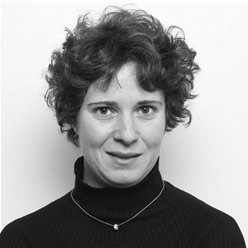
Fanny Caputo is a researcher and project manager at the LNE (French Institute of Metrology). Her main interest is in the physicochemical evaluation of nanomaterials in consumer products, food, medical devices and in medicinal products. She focuses on the (pre-)standardization of characterization methods for regulatory purposes, including the identification and characterisation of nano-objects in complex media. She is she is involved in multiple standardisation projects involving fractionaction methods and particle size distribution measurements. She is also involved in the development of a technical specification focusing on the identification and characterization of nano-objects in inorganic additives incorporated in food matrices.
13:30 – 15:00
Round Table on the Needs for Characterisation and Test Method Developments for Graphene
*** Panelists: Presenters of Day 2 ***
Georges Favre (LNE)
 Dr. Georges Favre is the Director of Nanotech Institute at LNE, which carries out R&D activities aimed at validating the performances of new measurement technologies and harmonising standard operating procedures (SOPs) in relation to multiple issues (nanomaterial identification, quality control, NOAAs emissions assessment, etc.) and properties (size distribution, concentration, stability/dispersibility, dustiness, dopant profile, conductivity, etc.) for different types of nanomaterials (metal oxides, graphene, LNPs, EVs, etc.), as well as services to industry and governmental agencies. He is involved in numerous networks and initiatives dealing with Advanced Materials/Nanomaterials characterisation/metrology, standardisation (AFNOR, CEN, VAMAS, OECD/WPMN…), safety and regulation topics. He co-created in 2022 the NanoMesureFrance association which ambition is to strengthen confidence in nanomaterials and associated innovations by bringing together key stakeholders (producers and users of nanomaterials, instrument manufacturers, service providers, laboratories and analytical platforms) in order to share information and work on harmonisation and validation of the tools and methods needed to characterise key phys-chem properties of nanomaterials at different stages of their life cycle.
Dr. Georges Favre is the Director of Nanotech Institute at LNE, which carries out R&D activities aimed at validating the performances of new measurement technologies and harmonising standard operating procedures (SOPs) in relation to multiple issues (nanomaterial identification, quality control, NOAAs emissions assessment, etc.) and properties (size distribution, concentration, stability/dispersibility, dustiness, dopant profile, conductivity, etc.) for different types of nanomaterials (metal oxides, graphene, LNPs, EVs, etc.), as well as services to industry and governmental agencies. He is involved in numerous networks and initiatives dealing with Advanced Materials/Nanomaterials characterisation/metrology, standardisation (AFNOR, CEN, VAMAS, OECD/WPMN…), safety and regulation topics. He co-created in 2022 the NanoMesureFrance association which ambition is to strengthen confidence in nanomaterials and associated innovations by bringing together key stakeholders (producers and users of nanomaterials, instrument manufacturers, service providers, laboratories and analytical platforms) in order to share information and work on harmonisation and validation of the tools and methods needed to characterise key phys-chem properties of nanomaterials at different stages of their life cycle.
15:00 – 15:15
Workshop Wrap-Up – Conclusions – Outlook
Steffi Friedrichs (AIST)
 Dr Steffi Friedrichs, Founder & Director of AcumenIST SRL, has been a leading expert, policy advisor and business representative for emerging technological innovation for over 20 years.
Steffi made a name for herself as the founder and Director-General of the Nanotechnology Industries Association (NIA) group, where she established novel, collaborative approaches to the political representation of technology-based companies.
Having thus initiated numerous large-scale public-private collaborations and created channels for industries’ contributions to both international and national regulatory processes, Steffi subsequently worked for the OECD, where she developed its definition, indicators and impact assessment of biotechnology, nanotechnology, and other converging technologies, and led two international technology policy workshops on genome editing.
Wishing to support the advancement of transparent, science-based policy-making, Steffi gathered a strong track record in the establishment, development and representation of technology-based companies, and created and ran participatory technology assessment workshops. She initiated several outreach and communication initiatives to foster the public understanding of novel technologies. She was a Co-Founder and Member of the Board of Directors of the Chicago Micro- & Nanotechnology Community (CMNC), Director of the Master’s Programme in Micro- and Nanotechnology at the University of Cambridge, and Lecturer in Inorganic Chemistry and Solid State Chemistry at the University of Oxford.
Dr Steffi Friedrichs, Founder & Director of AcumenIST SRL, has been a leading expert, policy advisor and business representative for emerging technological innovation for over 20 years.
Steffi made a name for herself as the founder and Director-General of the Nanotechnology Industries Association (NIA) group, where she established novel, collaborative approaches to the political representation of technology-based companies.
Having thus initiated numerous large-scale public-private collaborations and created channels for industries’ contributions to both international and national regulatory processes, Steffi subsequently worked for the OECD, where she developed its definition, indicators and impact assessment of biotechnology, nanotechnology, and other converging technologies, and led two international technology policy workshops on genome editing.
Wishing to support the advancement of transparent, science-based policy-making, Steffi gathered a strong track record in the establishment, development and representation of technology-based companies, and created and ran participatory technology assessment workshops. She initiated several outreach and communication initiatives to foster the public understanding of novel technologies. She was a Co-Founder and Member of the Board of Directors of the Chicago Micro- & Nanotechnology Community (CMNC), Director of the Master’s Programme in Micro- and Nanotechnology at the University of Cambridge, and Lecturer in Inorganic Chemistry and Solid State Chemistry at the University of Oxford.